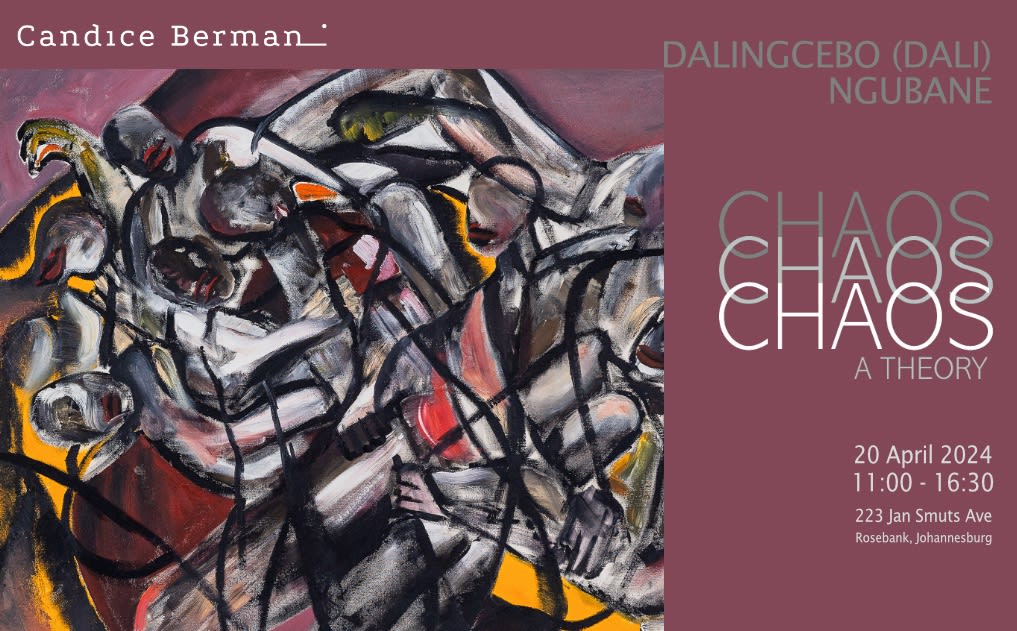"That tiny changes will eventually result in bigger differences in the future. Life is chaotic but structures such as faith, and relationships allow us to survive the absurdity of life. Time, random events, and unjust injuries chipped away at these structures turning them from my protection and into agents of anxiety. Faith became a means with which I ostracized myself and relationships, a way to redirect love meant for me to others. I was sinking, fading away slowly into the dark. Everything was always everywhere all at once, and all the time. I didn’t want to self-destruct. So I let go of my shame, of my expectations, of order. I live in chaos, in hopes that I find a way back to myself."
-Dalingcebo "Dali" Ngubane
CHAOS, A THEORY
2024
That tiny changes will eventually result in bigger differences in the future
Dalingcebo 'Dali' Ngubane's exploration of chaos theory in his debut solo exhibition at Candice Berman Gallery delves into the intricate dynamics of life, faith, and relationships. Through his complex figurative dances, Ngubane visually navigates the concept that tiny changes can lead to significant differences over time.
The exhibition offers a deeply personal reflection on the human experience, portraying how life's chaotic nature can both shape and challenge our perceptions of faith and relationships. Ngubane's art appears to capture the struggle of maintaining stability in the face of constant flux, as structures once relied upon for protection gradually transform into sources of anxiety.
The artist's journey through chaos, as depicted in his work, resonates with a universal longing to find meaning and belonging amidst the unpredictable currents of existence. By relinquishing shame, expectations, and the desire for order, Ngubane seems to embrace chaos as a path toward rediscovering one's true self.
Ngubane's exhibition promises to be a visually compelling and emotionally resonant exploration of the human condition, inviting viewers to contemplate their own relationships with chaos, faith, and personal identity.


